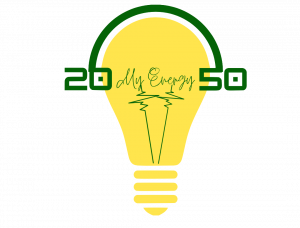This week we speak with Sarah Mills, a Senior Project Manager, at the Graham Sustainability Institute, and Lecturer at the School for Environment and Sustainability at the University of Michigan.
Uniquely for this podcast, we are learning about the Midwest of the United States and my home state of Michigan. For me, this was one of the most eye-opening interviews I’ve done in a very long time. I realize that sounds really odd, but I was surprised by a lot of the research Sarah has done of who supports and who doesn’t support the development of renewable energy projects at the community level. This rural community level is our focus this week.
As you’ll hear throughout our conversation, the acceptance or rejection of wind farms and even solar is dependent on community members’ perspectives on the use of the land. Farmers support wind, while those that have a second home on a nearby lake may oppose energy projects.
Sarah explains that the rollout of renewable projects that impact the landscape is only recent, stemming from our historical reliance on coal-fired power plants which took up less space. Sarah describes how a change in land use is a real challenge for community zoning boards who lack the expertise and experience to balance the polarized views of the community.
In this discussion, we look at how policies in Washington will be impacting communities across the US. Specifically, we discuss the expansion of tax credits to foster more renewable energy projects on a huge scale. This is the impact of the Inflation Reduction Act and also the Bipartisan Infrastructure Law in the US.
I really enjoyed my discussion with Sarah, and as you’ll hear, there remain important obstacles for renewable energy that communities must deal with. Is it fair to standardize zoning regulation or is it better to have different requirements every six miles or so, aligning with the different zoning areas for local government units?
We have a brief discussion about energy justice and local versus state or national standards. IS it really fair to exclude the locals in deciding to build energy projects? The subtext of our conversation is about that today. What do we do if we have ambitious targets to roll out renewable energy, but local communities say not-in-my-backyard? As you’ll hear, this is not a theoretical argument, but happening more and more often across the US.
Keywords
United States, Michigan, energy transition, wind power, solar, zoning regulations, rural communities, land use, NIMBY, tax credits,
Transcript AI
Sarah Mills Full episode transcript, with audio
Sarah Mills – pdf, full episode transcript
Outline
Introduction to this episode.
0:00
How did you get interested in renewable energy?
5:19
How did you become interested in farmland preservation?
7:14
The importance of interdisciplinary skills.
11:05
Are you here with farmers or are you here with the lakers?
17:54
What’s driving renewable energy development in Michigan?
23:54
What is the definition of energy communities?
29:36
What are tax credits and tax credits?
32:41
The role of renewable energy in rural communities.
39:24
Rural communities and energy poverty.
43:27
Zoning database in six states.
49:19
How does the technology need to change to get social acceptance?
Dr. Michael LaBelle is an associate professor at Central European University in the Department of Environmental Sciences. He produces the My Energy 2050 podcast to change how we communicate and improve the energy transition.
